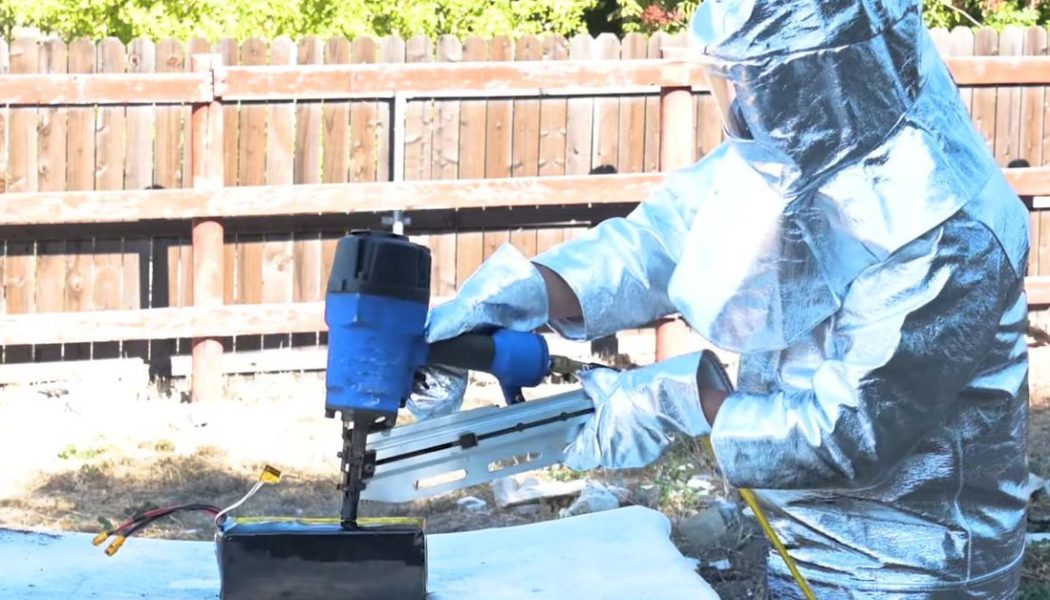/cdn.vox-cdn.com/uploads/chorus_asset/file/24208632/Screen_Shot_2022_11_18_at_10.39.02_AM.jpg)
Repair specialists iFixit have released a new video of themselves stabbing and, ultimately, nail gunning a series of batteries in the name of teaching the world about battery safety. The takeaway? Despite the high profile examples of battery explosions that occasionally crop up in the news, modern lithium ion batteries are generally very safe so long as you follow some best practices.
Another takeaway? Shooting a giant battery with a nail gun is cool as hell.
The biggest piece of advice from tech writer team lead Arthur Shi and teardown tech Shahram Mokhtari is to always discharge a battery to under 25 percent before doing any teardowns or repairs. That’s because although a swelling battery is the most obvious sign that something is wrong, it’s actually the amount of charge a battery holds that determines whether a short circuit can create enough heat to cause “thermal runaway” (what you or I might call a fire or explosion).
To demonstrate this, Shi and Mokhtari stabbed a series of batteries to see which ones would explode. An iPhone 12 Pro Max battery on low charge emitted a little smoke and some small sparks when stabbed with a metal screwdriver, but stab the same model when it’s fully charged and you’re treated to a full-on explosion. “Remember, these were identical batteries,” Arthur Shi explains. “The only difference between them was the state of charge.”
Other advice includes using a non-conductive plastic spudger rather than metal to further reduce the risk of punctures and short circuits when removing a battery. And the video also calls on manufacturers directly to stop gluing batteries into their devices to make disassembly and repairs safer in the first place.
iFixit’s video comes a little over a month after tech YouTuber Arun Maini (aka Mrwhosetheboss) drew attention to the fact that a number of Samsung phones in his collection had swelling batteries after having sat unused on his shelf for a number of years. iFixit’s video doesn’t address Maini’s report directly, but its implication is that these batteries aren’t necessarily dangerous so long as you dispose of them correctly and definitely don’t try to charge or use them.









